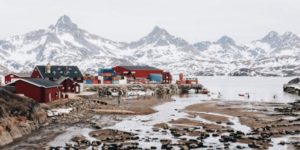Some Bridges
It is with some trepidation that I approached the second issue of Some Islands, not least because it was described to me as a journal about linguistics, art, and architecture. My training in these fields causes me to tense up with a conscientious undergraduate’s panic about not having studied for the exam. My trepidation was amplified when I saw that Lingoblog’s review of the previous issue was also beautifully illustrated by Miša Hejná, also a contributor to the present issue — something I have not braved in the present review.
The theme, representation, conjures half-remembered memories of lectures in semantics that I’m sure were also only half-understood. So, perhaps, as befits the issue’s theme of representation, it’s best to begin … ↪






